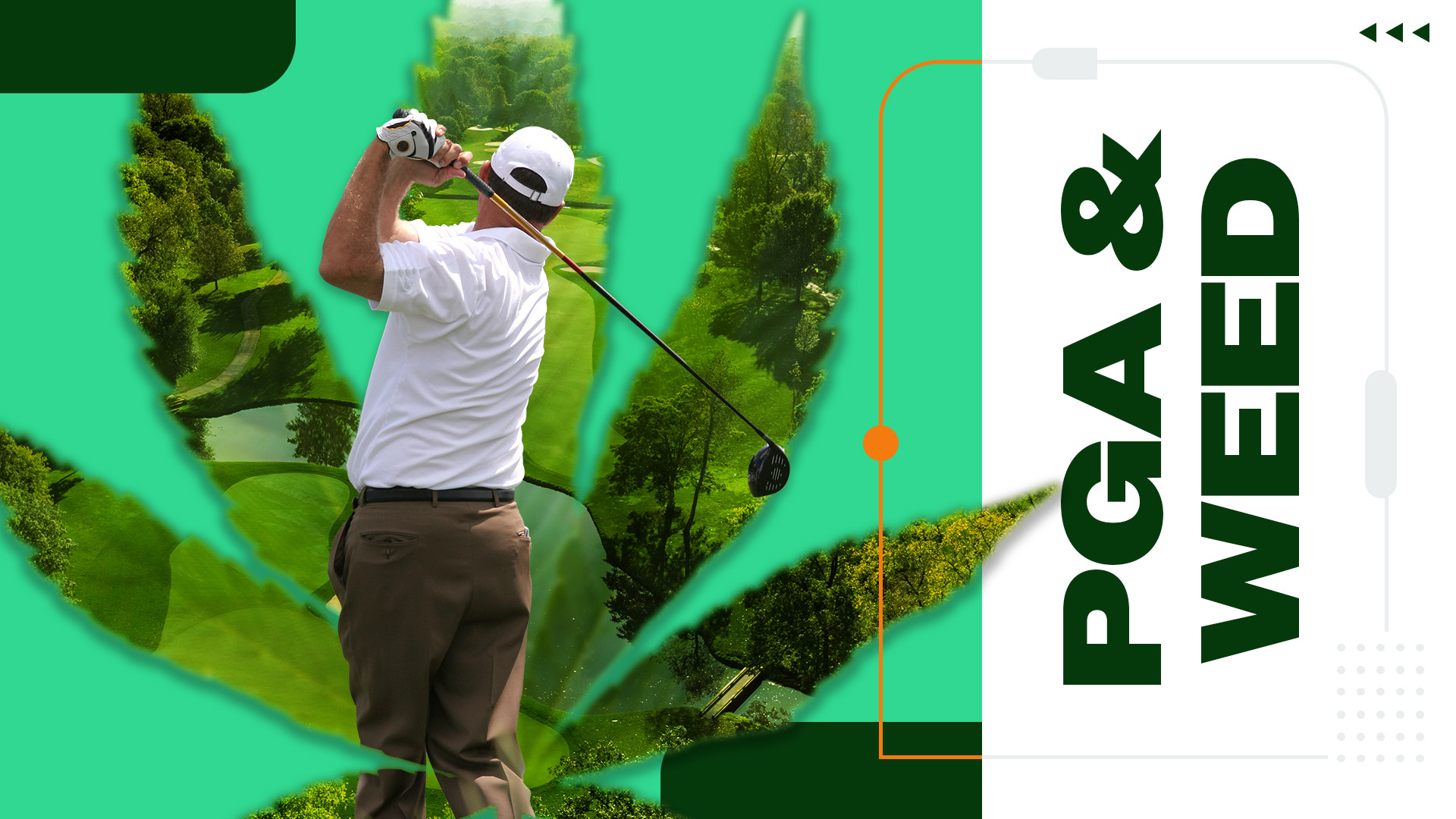The use of drugs in professional sports has made headlines for decades. Just recently, a group of swimmers became extra newsworthy for winning Olympic Gold when they had tested positive for a banned drug months earlier. Indeed, debates surrounding drug usage in professional sports have typically been focused on performance-enhancing stimulants in endurance and power sports.
Curious about where cannabis stands? With the PGA (Professional Golfers’ Association of America) Tour in full swing, we delved into the status of cannabis in golf. Does the PGA actually care about players using cannabis, or are the regulations more of a formality?
The Player Handbook
To understand the PGA’s most updated policies for players, the 2024 PGA Tour Player Handbook is accessible to the public.
While the handbook does not name any specific drugs, it does speak broadly about their policies. The PGA explains that “[violations] relating to Drugs of Abuse shall be subject to fine, suspension and/or permanent disbarment from tournament play as provided in these Regulations.”
In other words, players found to violate the Association’s drug policies may face a range of consequences, with the most severe being permanent disbarment.
On the other end of the spectrum, players may be required to receive some kind of treatment or rehab. The handbook reads, “For violations of the PGA TOUR Anti-Doping Program related to Drugs of Abuse, an approved plan of treatment and rehabilitation to be conducted at the player’s expense, in addition to or in lieu of other penalties may be imposed.”
In this way, the handbook keeps the consequences related to drug violations vague and open-ended, with situations handled on a case-by-case basis. But what do these violations entail, and where does cannabis specifically fit in?
Rather than being outlined in the handbook, these details are in the Anti-Doping Manual referenced throughout the handbook.
The Anti-Doping Manual
The PGA Tour Anti-Doping Program Manual goes into drug policies with much more thorough detail, speaking to cannabis specifically. They clarify that both “natural and synthetic” cannabis is prohibited.
Perhaps most interesting, however, is the manual’s acknowledgment that in contrast to some other drugs, cannabis is not performance-enhancing. They explain, “Athletes are unlikely to use cannabinoids to improve their performance; however, some athletes have used cannabinoids to decrease anxiety before a competition.”
Why You Should Get Your Medical Marijuana Card
Veriheal has satisfied millions of patients nationwide by giving them access to these benefits
- Larger purchase limits
- Peace of mind
- Enhanced legal protection
- Access to higher potency strains
- Save up to 25% on cannabis purchases
- Skip the line at the dispensary
So, Why is it Banned?
Given the PGA’s admission that cannabinoids are not a likely choice for performance enhancement, why are they still banned?
The manual explains, “Marijuana is illegal under federal law and in most other countries. Involvement with illegal substances goes against the spirit of our sport.” This means that the PGA’s banning of marijuana is part of their ethos of adhering to broader federal and national laws. The manual then goes on to outline potential health risks, but it does not say anything else about cannabis-specific violations or issues.
PGA Drug Testing
Of course, the PGA’s official stance in their Player Handbook and Anti-Doping Manual is only one aspect of how they view and treat cannabis. What do their drug testing policies look like?
While the PGA did not always test, they announced in 2017 that they would begin blood testing. Prior to this, only urine testing was done, and it seemed to be relatively lax—player Rory McIlroy said in 2016, “I could use HGH (human growth hormone) and get away with it,” McIlroy said. “So I think blood testing is something that needs to happen in golf just to make sure that it is a clean sport going forward.”
Suspensions Due to Cannabis Use
Indeed, it does seem that the altered policies in 2017 marked a shift in the PGA cracking down harder on marijuana usage.
In 2019, Matt Every was suspended for 12 weeks for violating the PGA Tour’s drug policies. Every released a statement, saying that the violation was due to cannabis, “a drug I do not abuse and a drug that I have a legal prescription for in the state of Florida.” And only three months prior, Robert Garrigus was suspended for three months after testing positive for THC.
Both Every and Garrigus expressed in their statements that they felt the policies were unfair, and they advocated for players’ ability to use cannabis for medicinal purposes. Garrigus told NBC, “If you have some sort of pain and CBD or THC may help that, and you feel like it can help you and be prescribed by a doctor, then what are we doing?”
Moving Forward
Despite these suspensions in 2017 and 2019, it seems promising that cannabis-related suspensions in the PGA have been largely absent from headlines since then. Given that not only have players spoken out about their disagreement with the cannabis ban, but the PGA themselves also state that it is not a drug used for performance enhancement, we hope that these policies can be changed over time.
Because players have discussed how cannabis helps them with mental health and pain relief, greater tolerance of cannabis would seem to be well-received by players while still allowing for a fair game.
Author, Share & Comments








